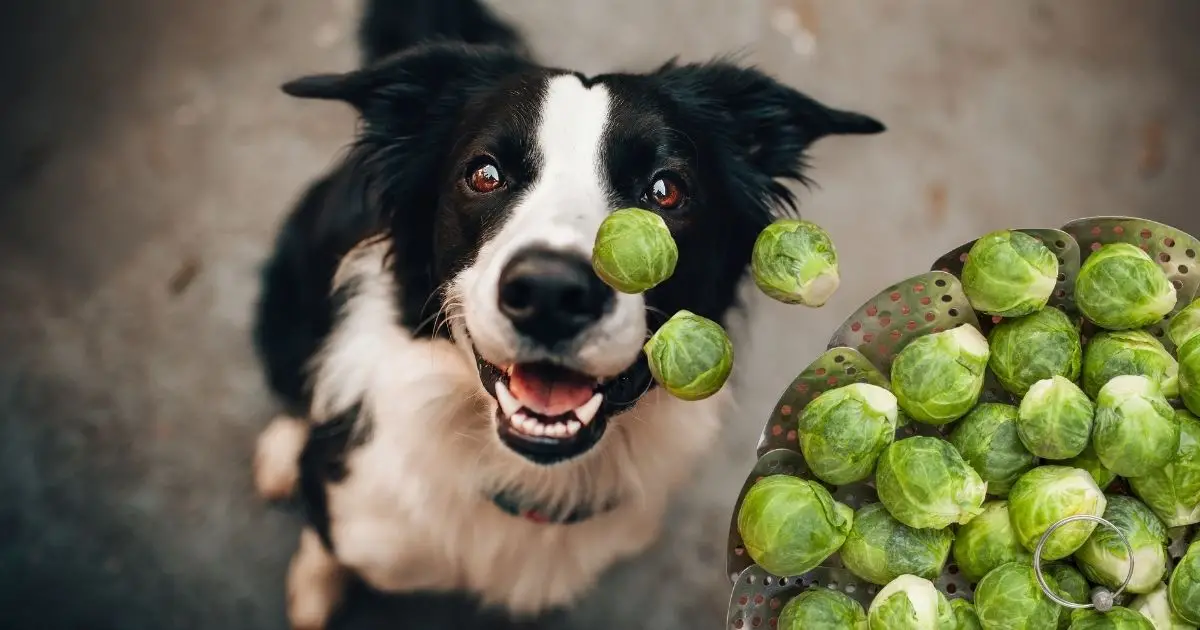Brussels sprouts are a nutritious vegetable that many humans enjoy, especially during the holiday season or as part of a healthy diet. If you're a dog owner, you might wonder whether it's safe to share this green vegetable with your furry friend. This article explores whether dogs can eat Brussels sprouts, the potential health benefits, and any risks to consider.
Are Brussels Sprouts Safe for Dogs?
Yes, dogs can eat Brussels sprouts! In moderation, they can be a healthy addition to your dog's diet. Brussels sprouts are packed with essential nutrients and can provide various health benefits for your dog.
Health Benefits of Brussels Sprouts for Dogs
-
Rich in Nutrients: Brussels sprouts are high in vitamins K and C, as well as fiber, which can support your dog's immune system, improve digestion, and promote overall health.
-
Low in Calories: This vegetable is low in calories, making it an excellent option for dogs that need to maintain a healthy weight.
-
Antioxidant Properties: Brussels sprouts contain antioxidants that can help combat oxidative stress and inflammation in your dog's body.
-
Digestive Health: The fiber content in Brussels sprouts can aid in digestion and help prevent constipation in dogs.
How to Prepare Brussels Sprouts for Your Dog
To safely incorporate Brussels sprouts into your dog's diet, follow these preparation tips:
-
Cook Thoroughly: Always cook Brussels sprouts before feeding them to your dog. Steaming or boiling is ideal. Raw Brussels sprouts can be tough for dogs to digest and may lead to gastrointestinal upset.
-
Avoid Seasonings: When cooking Brussels sprouts for your dog, do not add any seasonings, butter, or oils. These additives can be harmful to dogs.
-
Serve in Moderation: Introduce Brussels sprouts gradually and in small amounts. A few cooked Brussels sprouts are sufficient as a treat, especially for smaller dogs.
-
Chop into Smaller Pieces: Cut Brussels sprouts into smaller pieces to prevent choking and make them easier for your dog to eat.
Potential Risks of Feeding Brussels Sprouts to Dogs
While Brussels sprouts are safe for dogs in moderation, there are a few potential risks to keep in mind:
-
Gas and Bloating: Brussels sprouts contain compounds called glucosinolates that can produce gas when digested. Some dogs may experience bloating or flatulence, so monitor your pet for any discomfort.
-
Digestive Upset: Introducing any new food can sometimes lead to digestive upset. If your dog shows signs of vomiting or diarrhea after eating Brussels sprouts, discontinue feeding them and consult your veterinarian.
-
Allergies: Though rare, some dogs may have allergies to certain vegetables. Always watch for allergic reactions when introducing any new food.
What to Do If Your Dog Eats Brussels Sprouts
If your dog accidentally consumes Brussels sprouts, here are steps to follow:
-
Observe Your Dog: Watch for any signs of gastrointestinal distress, such as vomiting, diarrhea, or excessive gas.
-
Consult Your Veterinarian: If your dog experiences severe symptoms or if they consume a large amount of Brussels sprouts, contact your veterinarian for advice.
-
Provide Fresh Water: Ensure your dog has access to fresh water, especially if they experience any digestive issues.
Safer Alternatives to Brussels Sprouts
If you’re looking for other vegetables that are safe and healthy for your dog, consider these options:
-
Carrots: Raw or cooked carrots are a crunchy, low-calorie treat that many dogs love.
-
Green Beans: Cooked green beans are also low in calories and high in fiber, making them a great snack for dogs.
-
Sweet Potatoes: Cooked and mashed sweet potatoes are nutritious and can be a tasty addition to your dog’s meals.
-
Peas: Green peas (fresh or frozen) can be served as a nutritious snack and are often well-received by dogs.
Conclusion
In moderation, Brussels sprouts can be a healthy and safe treat for your dog. With their numerous health benefits, this vegetable can contribute positively to your pet’s diet when prepared properly. Always introduce new foods gradually, and keep an eye on your dog for any adverse reactions. If you have any concerns about your dog's diet, consult your veterinarian for personalized guidance.


